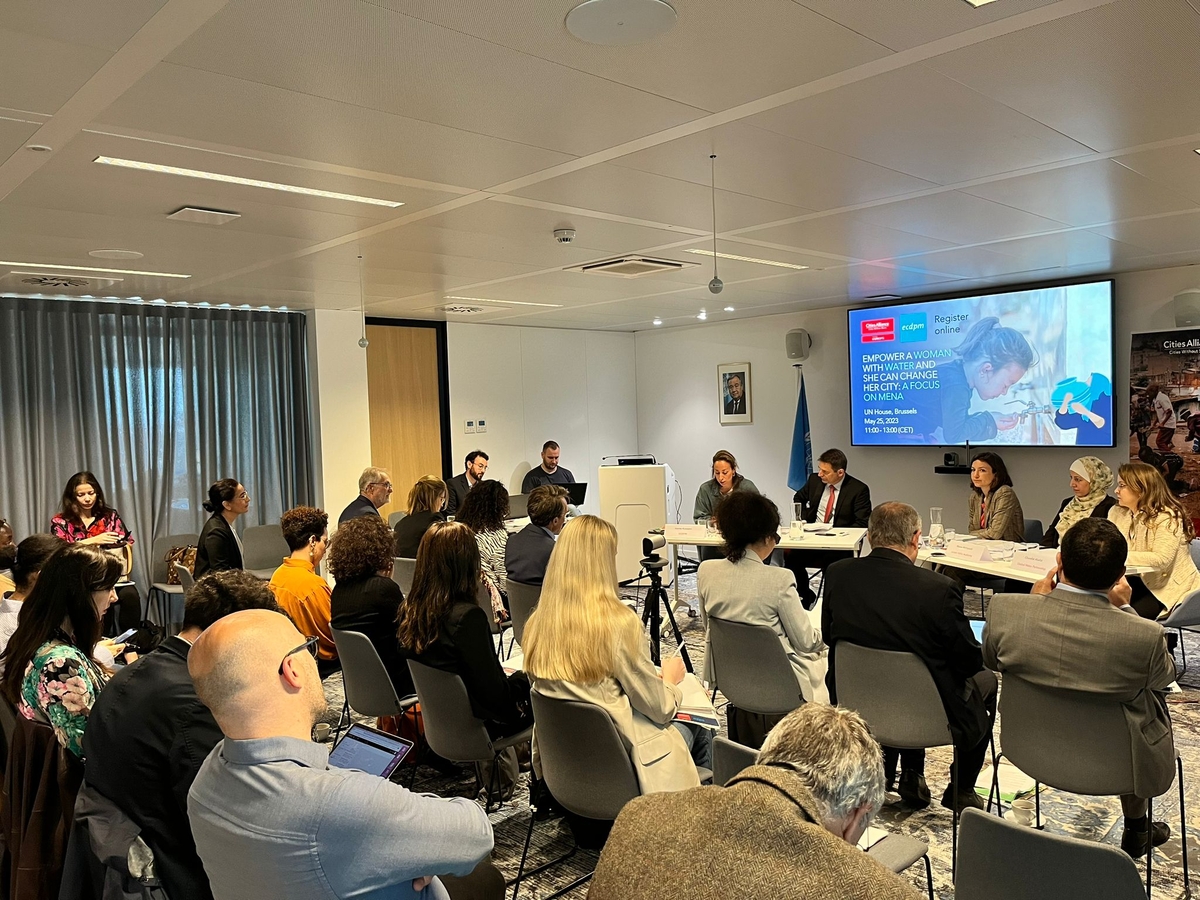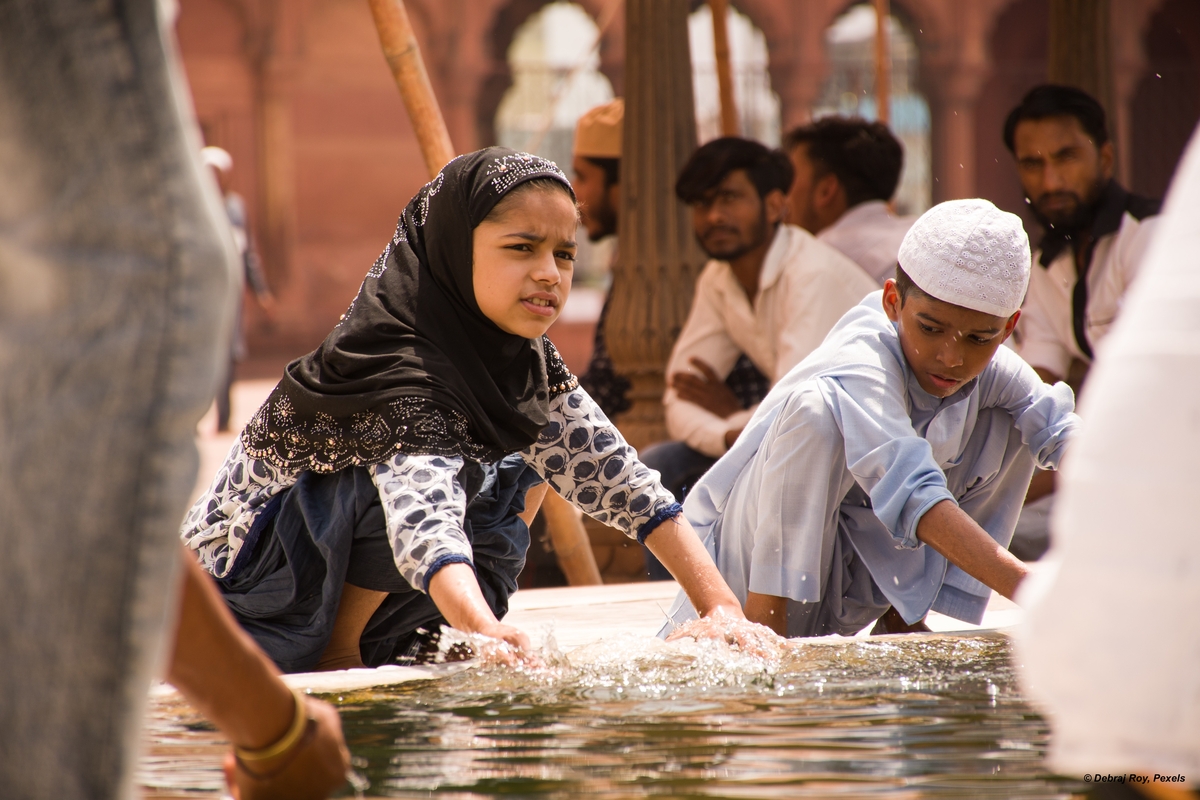On 25 May 2023, Cities Alliance and ECDPM hosted the workshop 'Empower a Woman with Water, and She Can Change Her City: A Focus on MENA', marking the launch of the new Women and Sustainable Cities programme. This regional initiative led by Cities Alliance, with support from France, aims to increase women's agency in water governance and address gender inequality in urban areas across the Middle East and North Africa (MENA) region.
The event convened experts and decision-makers from the European Commission, EU member states, think tanks, regional governments, and civil society, to highlight the urgent need to address water scarcity as a key driver of gender inequality in the region.
The MENA region faces significant challenges related to water scarcity, with 11 out of the world's 17 most water-stressed countries situated here, including Jordan, Morocco, Tunisia, and Egypt. Water resources in the region are under severe strain, leading to substantial socio-economic and environmental impacts. These challenges disproportionately affect women and perpetuate gender disparities in accessing and managing water resources.

During the workshop, experts highlighted the pressing need to empower women and increase their participation in decision-making processes concerning water governance.
90 per cent of the Jordan territory receives less than 200 mm of rainfall per year, according to Manar Mahasneh, Secretary General of the Jordan Valley Authority. ‘Water scarcity in Jordan puts pressure on the livelihoods and well-being of local communities as well as the large groups of refugees entering the country from Syria and Palestine. The country is battling the issue through water desalination and improving infrastructure, which, unfortunately, comes at a high price’, she said.
Currently, women's involvement in the water sector remains limited, with only a small percentage occupying formal water-related positions and holding ministerial roles related to water and natural resources. This lack of representation hinders effective water management strategies and perpetuates gender inequality.
When I became a minister, many were asking why they put a woman to lead the water sector.
Charafat Afailal, former Moroccan Minister of Water
Morocco's successful implementation of quotas for women in senior water governance positions demonstrates the positive impact of inclusive policies. However, in Jordan, the low participation of women in the water sector remains a concern ‘In Jordan, 11 per cent of employees in the Ministry of Water are women’, said Saja Majali, Ambassador of Jordan to Belgium, who emphasized the need for empowering women in decision-making roles.
The launch of the Women and Sustainable Cities programme marks a significant step towards addressing these systemic challenges. Supported by the French Ministry for Europe and Foreign Affairs, the programme seeks to create inclusive water management frameworks that consider the specific needs and perspectives of all citizens.
Through inclusive water governance training, capacity-building initiatives, small-scale water infrastructure projects, and knowledge exchanges, the programme will support local governments in Figuig (Morocco), Kairouan (Tunisia), and Sebkha (Mauritania) to develop sustainable and gender-responsive water management practices.
This programme is fully aligned with France’s gender equality strategy and feminist diplomacy policy. It has the potential to drive positive change and be scaled up with support from other national governments and the EU.
Cecile Frobert, Deputy Head of Mission Democratic Governance, Ministry of Foreign Affairs, France
Additional initiatives are emerging in the region to enhance inclusive access to water resources, such as the European Commission's projects Clima-Med and Climate for Cities, which promote an integrated approach to resource management in cities across Algeria, Egypt, Israel, Jordan, Lebanon, Libya, Morocco, Palestine, Syria, and Tunisia. ‘The EU leveraged around €3 billion in water sector investments in Egypt to support nearly 16 million people,’ explained Guillaume Fine, Deputy Head of Division North Africa at DG NEAR.

Other examples showcased during the event include Algeria’s National Water Plan (2007-2025) which also established women's cooperatives in cooperation with GIZ; projects run by the Union for the Mediterranean to enhance water management, climate resilience, and gender mainstreaming; and water initiatives promoting women engagement funded by Sweden.
In conclusion, the workshop shed light on the urgent need to address water scarcity as a driver of gender inequality in the MENA region. The launch of the Women and Sustainable Cities programme signifies a crucial milestone in empowering women to actively participate in water governance and promoting sustainable solutions. By adopting a whole-of-society approach and engaging stakeholders at all levels, we can collectively work towards a more equitable and resilient future for the region.


